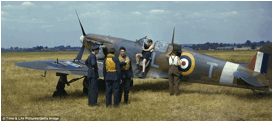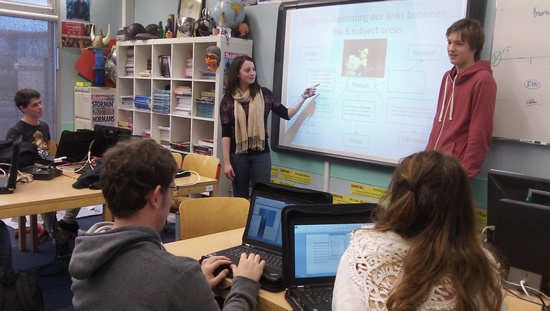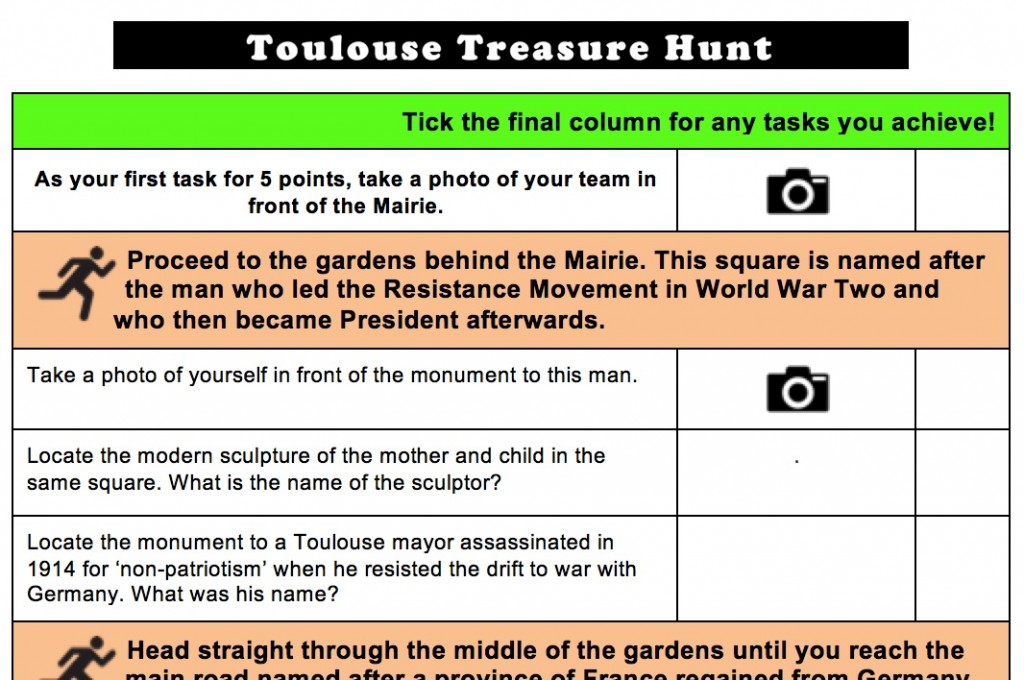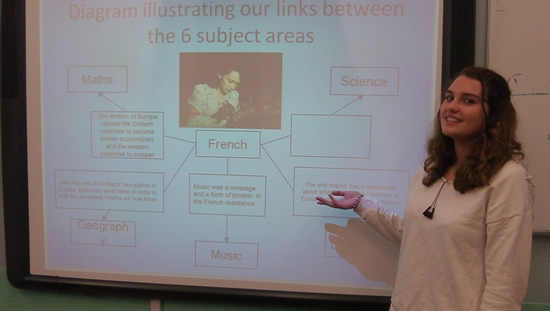IB Induction Project: "Was World War Two a period of progress and development?"Overview
ObjectivesThe event will:
Carousel of Subject Workshops / Preparation of Presentations (Monday / Tuesday)
Treasure Hunt (Wed AM)Wednesday AM The Treasure Hunt consists of several parts: Stage 1 (c. 45 minutes) Treasure Hunt 1 (completed by ALL teams) Stage 2 (c. 45 minutes) As soon as a team has completed their first Treasure Hunt worksheet, they should return to collect their second task sheet, which consists of another Treasure Hunt but in a specified part of town (so teams don't overlap with each other and have a temptation to cheat): Individualised Treasure Hunts:
Group Work - Delivering the Debate (Thursday)•
Teachers are looking for such things as: Peer Assessment• Following the debates, all students complete a peer assessment slip to measure the contribution of each person in their team. Supervising teachers collect these in, and use them to spot if any student has been 'carried' by the rest of the team and follow-up on this as appropriate. "Choose your own homework" - Planning the Personal ProjectTask 1: Deciding on the most “important” factors • After discussing as a class how we define “important” in history, you should work individually for this task. Write down your view of the FIVE most important ‘impacts’ of World War Two. Task 2: Linking the factors • Can these impacts be linked in any meaningful way? "Choose your own mark scheme" - students decide which aspects of the IB Learner Profile / ATLs to demonstrate through their project• Co-ordinators round off by explaining the next stage of the project (an individual "open homework" project marked using a "choose your own mark scheme" approach, the results of which are recorded in the student reporting system as a baseline assessment). Notes for teachers delivering sessionsThere are just a few essential pedagogical points to remember to cover in your sessions - beyond this, feel free to cover whatever content, in whatever format, that you think most appropriate!
| ||||||||||||||||||||||||||||||||||||||||

 In the first week back after the summer holidays:
In the first week back after the summer holidays:


 Student groups use lesson time in the following week to deliver their debates with teachers as judges.
Student groups use lesson time in the following week to deliver their debates with teachers as judges.